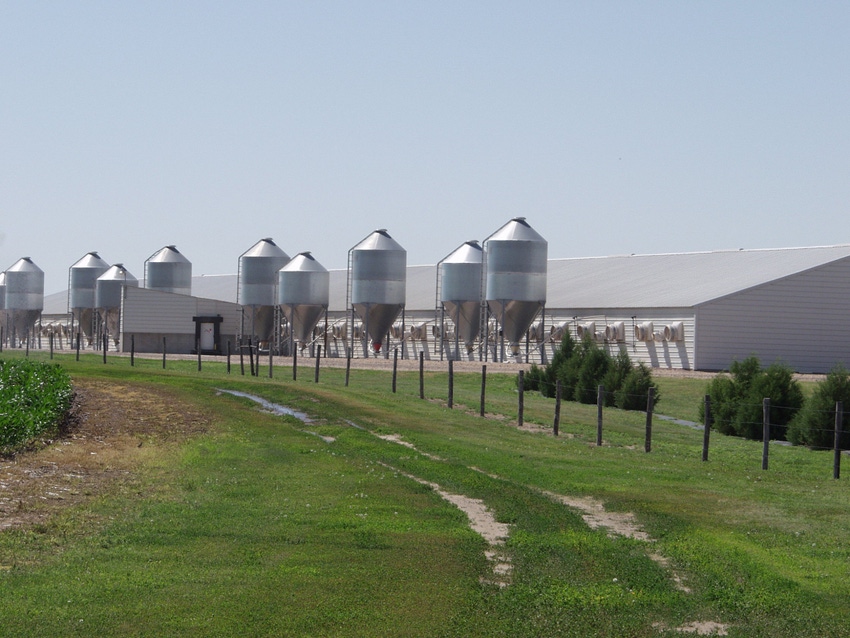Large hog farms unfairly blamed for poor health in communities
Re-evaluation of 2018 study emphasizes need for researchers and media to be responsible in data interpretation.
November 9, 2021

A scientific paper published in 2018 suggested an inaccurate or misleading association between hog farms and negative health outcomes. Although the authors themselves cautioned about the limitations of the study, the study caught the attention of the media, which, in many cases, made a superficial evaluation of the study, blaming the North Carolina swine industry for higher rates of negative health outcomes in communities who live near large hog farms.
A deep dive into the study unveiled that those claims may have been influenced by a preconceived idea that hog farms are to be blamed for poor health in the nearby communities. In 2020, a research group at the University of Minnesota led a re-evaluation of the 2018 paper, supported by Pork Checkoff. While that work is expected to be published early next year, some early findings highlight how the earlier paper failed at delivering a responsible scientific message. The overarching conclusions indicate the 2018 work should no longer be used to blame hog farms on negative community outcomes.
The 2018 published study did not correctly adjust for the key social determinants of health. The H-CUP hospital and emergency visit records they used do not have a person’s median household income, education level, or their access to primary care. In the absence of these social determinants of health, researchers assumed a person’s median household income, education level, insurance coverage, smoking prevalence, and the number of primary care physicians is same as everyone else in the zip code they live. This so called “Ecological Fallacy” affects the conclusions drawn from such erroneous statistical associations. The unfortunate reality is that based on the presence of these social determinants alone, one would already expect these communities to have higher rates of negative health outcomes. Association does not imply causation. While the 2018 publication admitted to this, media or the public may have gotten the wrong impression. The study picked a small group of five disease conditions that they claimed to have “known associations” with hog farm exposure—anemia, kidney disease, septicemia, tuberculosis (TB) and low birth weight. However, these “known associations” were not backed by evidence of causation. In the re-evaluation, the UMN group included HIV and diabetes in the analysis, two chronic disease conditions that have nothing to do with the exposure to hog farms. The UMN study showed that across the board, HIV and diabetes rates are higher in these NC communities, indicating profound and systemic health disparity in the community itself that have nothing to do with exposure to hog farms. This is more evidence for simply a correlation between negative health outcomes a proximity to hog farms and not any sort of causation.
Finally, the early study compared the odds of having the five conditions in people from zip codes with higher hog density to those who reside in zip codes with no hog farms, using hospital and emergency room visit records from 2007 through 2013. In this new assessment, the UMN group added 2014-2018 data as well and observed that associations implied for the 2007-2013 period did not exactly match the added years, which emphasizes the importance of taking reliable evidence from multiple studies before concluding evidence for association between diseases and exposure to hog farms.
In summary, this re-evaluation of the data performed by researchers at the University of Minnesota suggests that the scientific evidence used to justify the claims for hog farms causing negative outcomes in the community implied by the 2018 paper were insufficient and weak. Public perception can be swayed by misleading articles such as the 2018 publication that place undeserved blame on the swine industry for causing negative health outcomes.
In North Carolina, the swine industry is an important economic asset that provides jobs to large swathes of rural North Carolina. The hypothesis that exposure to hog farms leading to negative health outcomes in the neighborhood is a strong hypothesis that is detrimental to the agriculture. It is imperative that researchers and media be responsible in the interpretation of observational data and avoid drawing inaccurate conclusions or making causation claims.
Sources: Kaushi Kanankege, Isaac Traynor, Andres Perez. University of Minnesota, who are solely responsible for the information provided, and wholly own the information. Informa Business Media and all its subsidiaries are not responsible for any of the content contained in this information asset.
You May Also Like


